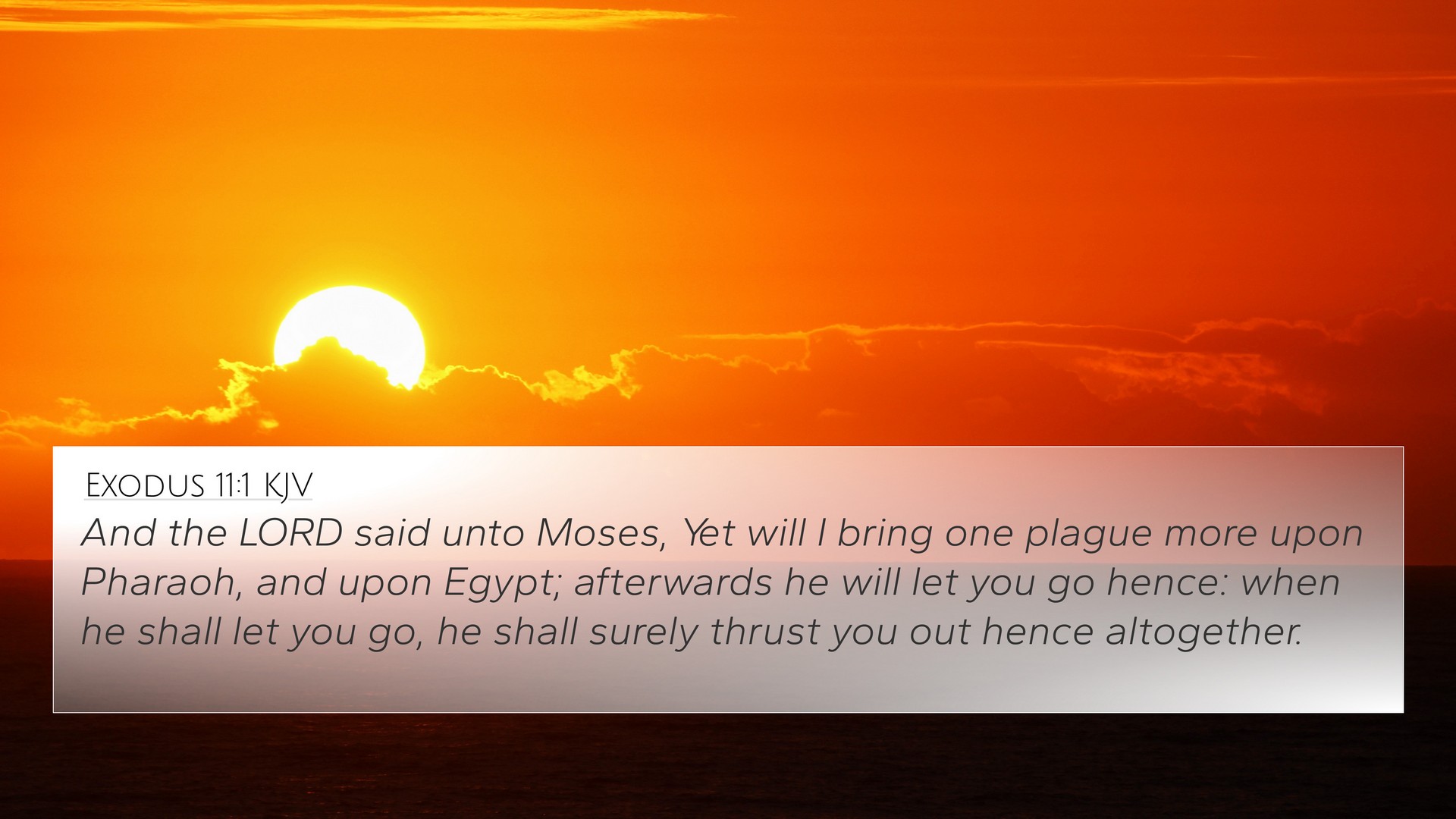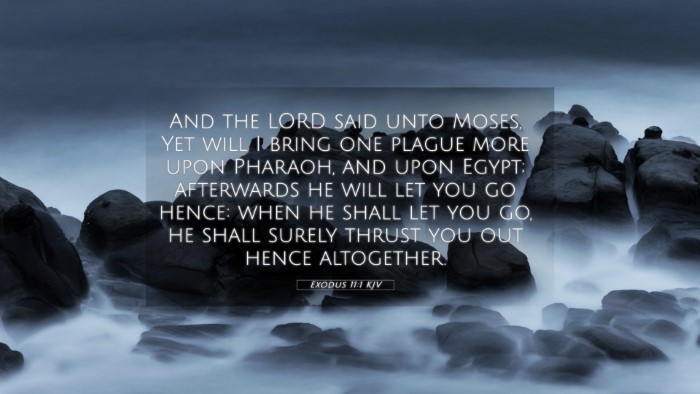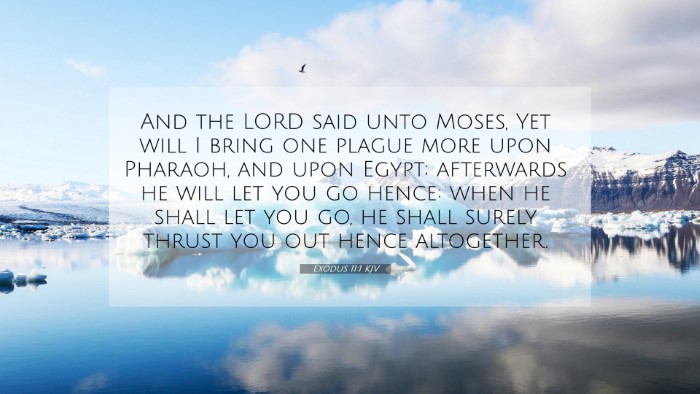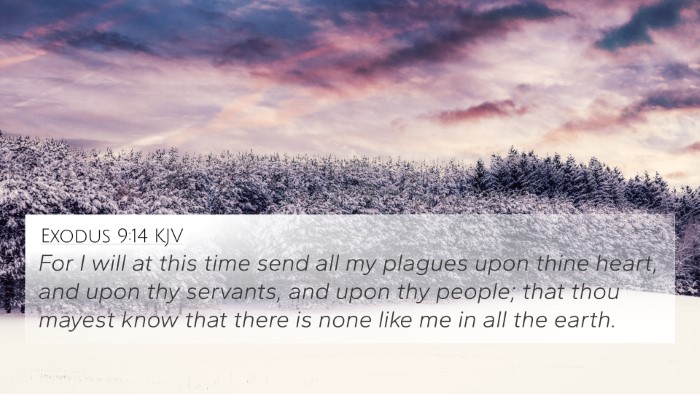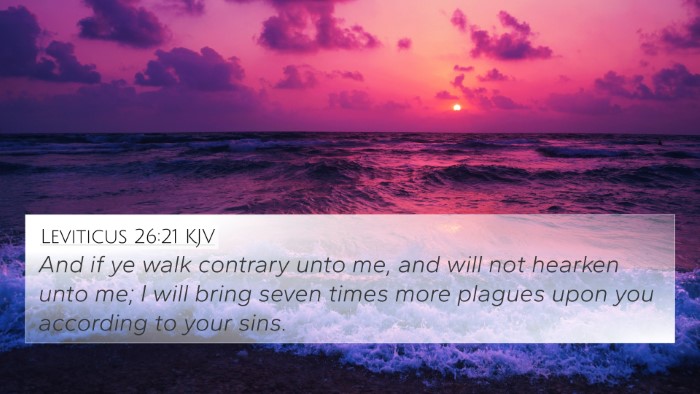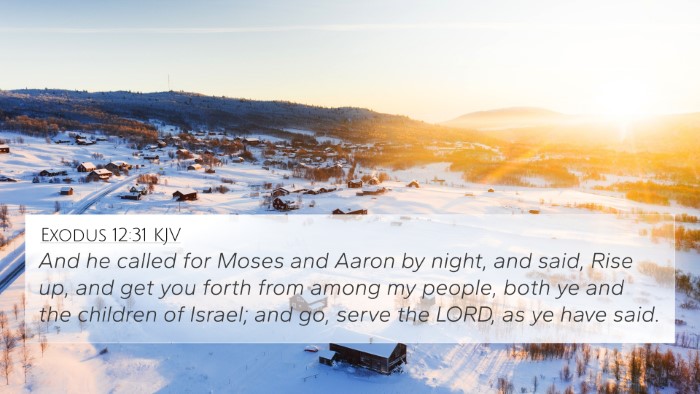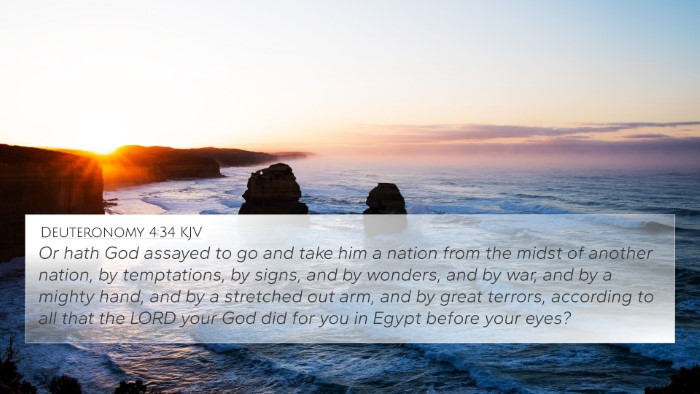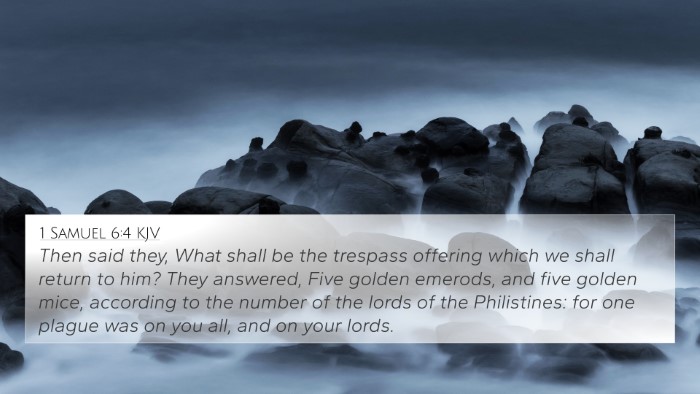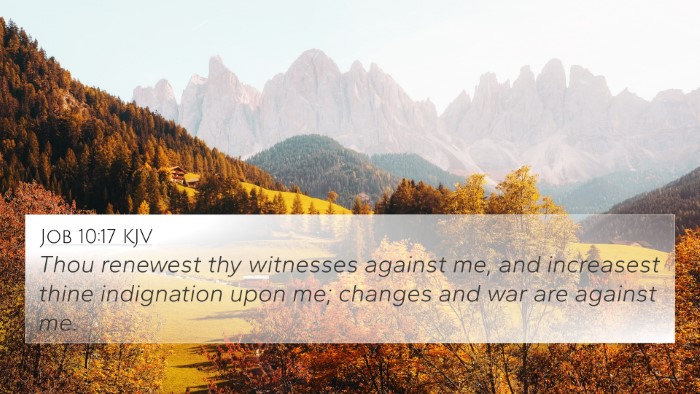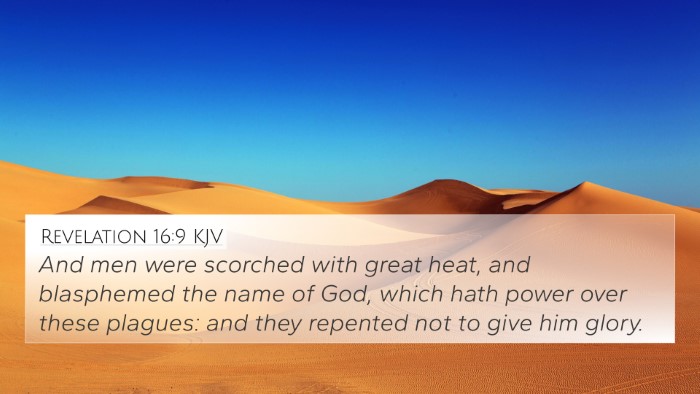Exodus 11:1 - Summary and Commentary
Verse: "And the LORD said unto Moses, Yet will I bring one plague more upon Pharaoh, and upon Egypt; afterwards he will let you go hence: when he shall let you go, he shall surely thrust you out hence altogether."
Understanding Exodus 11:1
The verse serves as a pivotal declaration by God to Moses about the impending final plague that will convince Pharaoh to release the Israelites from bondage. This theme of liberation resonates throughout the Bible, showcasing God’s sovereignty and ultimate plan for His people.
Insights from Commentaries
- Matthew Henry:
Henry emphasizes God's persistent call to Pharaoh, showcasing His authority and the lengthy process of displayed miracles that aim to change Pharaoh's heart. He discusses the significance of the last plague, marking it as a decisive act of judgment that will lead to Israel's liberation.
- Albert Barnes:
Barnes highlights the inevitability of the plagues and God's foreknowledge. The mention of Pharaoh's eventual compliance underlines the concept of divine justice and mercy intertwined throughout the narrative. He points out that despite his resistance, ultimately God will have His way.
- Adam Clarke:
Clarke discusses the gravity of the final plague—death of the firstborn—indicating significant loss and suffering. He notes this climax in the plagues represents God's ultimate power over Egyptian gods, revealing the futility of their worship in light of His sovereignty.
Bible Verse Cross-References
Exodus 11:1 connects with several other scriptures, illustrating thematic continuity regarding God's judgment, mercy, and the struggles of His people:
- Exodus 3:20: God promises to perform wonders to persuade Pharaoh to release the Israelites.
- Exodus 7:3-4: God explains His purpose in hardening Pharaoh's heart.
- Exodus 12:29-30: The actual account of the death of the firstborn.
- Hebrews 11:28: The faith of the Israelites in observing the Passover.
- Psalm 78:49: Referring to plagues sent upon Egypt as judgment from God.
- Revelation 16:10: A parallel theme of judgment in the end times.
- Romans 9:17: Paul's reflection on Pharaoh as a vessel of God's purpose.
Thematic Connections and Analysis
The narrative of Exodus 11:1 can be seen as a reflection of broader themes within scripture, including:
- Judgment and Mercy: The plagues serve as God’s judgment, yet they are also a form of mercy, offering opportunities for repentance.
- Faith and Obedience: The Israelites are called to act in faith, setting the stage for their deliverance.
- Divine Sovereignty: God's control over history and nations is a recurrent theme, reassuring His people of His ultimate authority.
- Redemption: The exodus is foundational in biblical redemption theology, symbolizing the liberation from sin.
Tools for Cross-referencing Bible Texts
There are many methods and resources to explore connections within the Bible, such as:
- Using a Bible concordance to find keywords and themes.
- Employing a cross-reference guide which allows for exploring related verses.
- Utilizing Bible reference materials for deeper study.
- Participating in Bible study groups, discussing thematic parallels with others.
Conclusion
Exodus 11:1 serves as a crucial turning point in the narrative of Israel's liberation from Egypt, rich with theological implications and practical life applications. The careful study of related verses encourages deeper understanding and appreciation of the cohesive message found throughout the Scriptures.
Further Reflections
For anyone studying the Bible, exploring cross-references not only enhances comprehension but also allows for discovering the interconnected nature of God's revelation. Understanding verses like Exodus 11:1 allows for a fuller grasp of the historical and spiritual dimensions of salvation history.
Call to Action
As you dive into the Word, consider using cross-referencing tools or participating in community discussions to enrich your study and application of biblical principles in your life.
